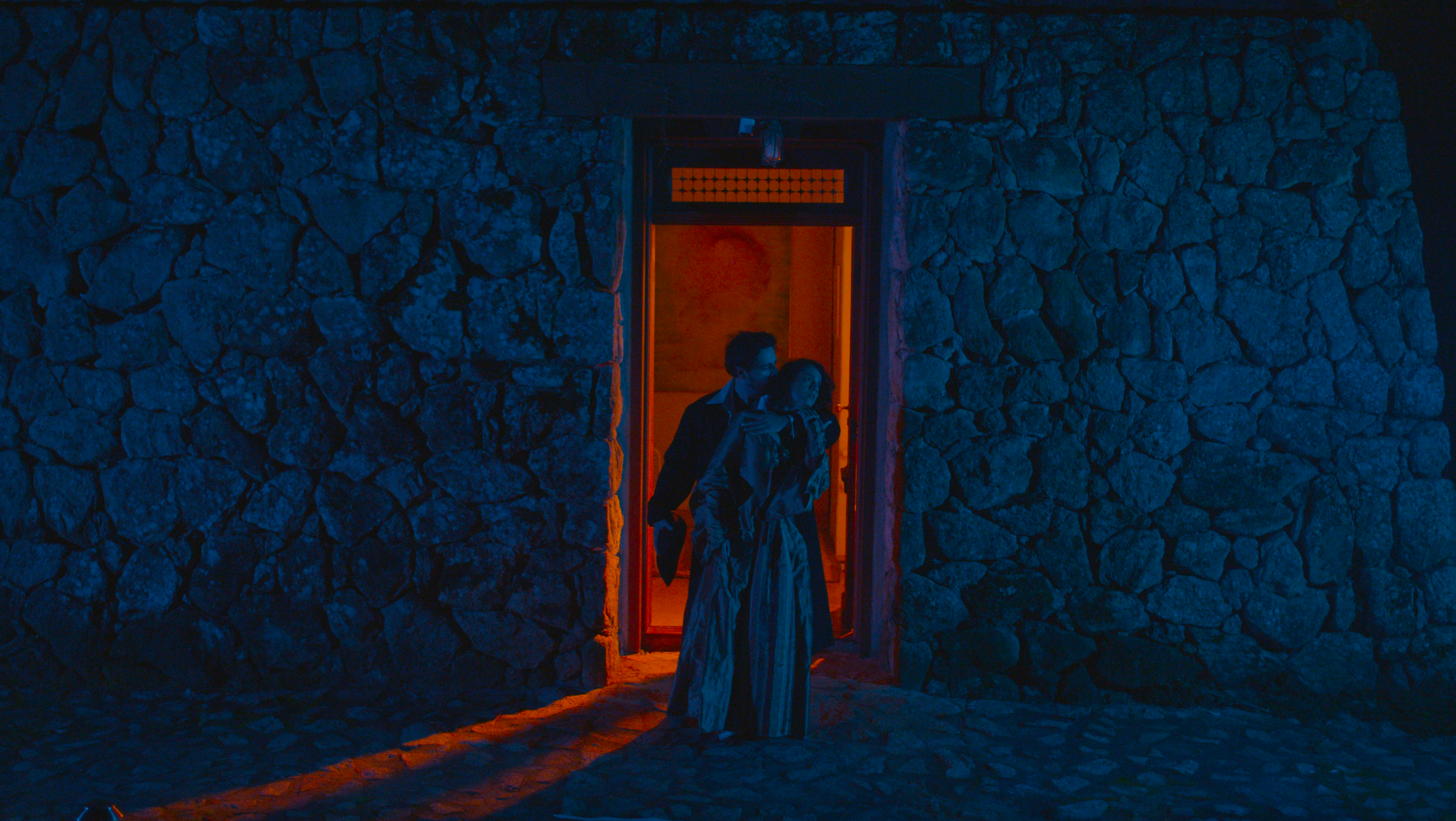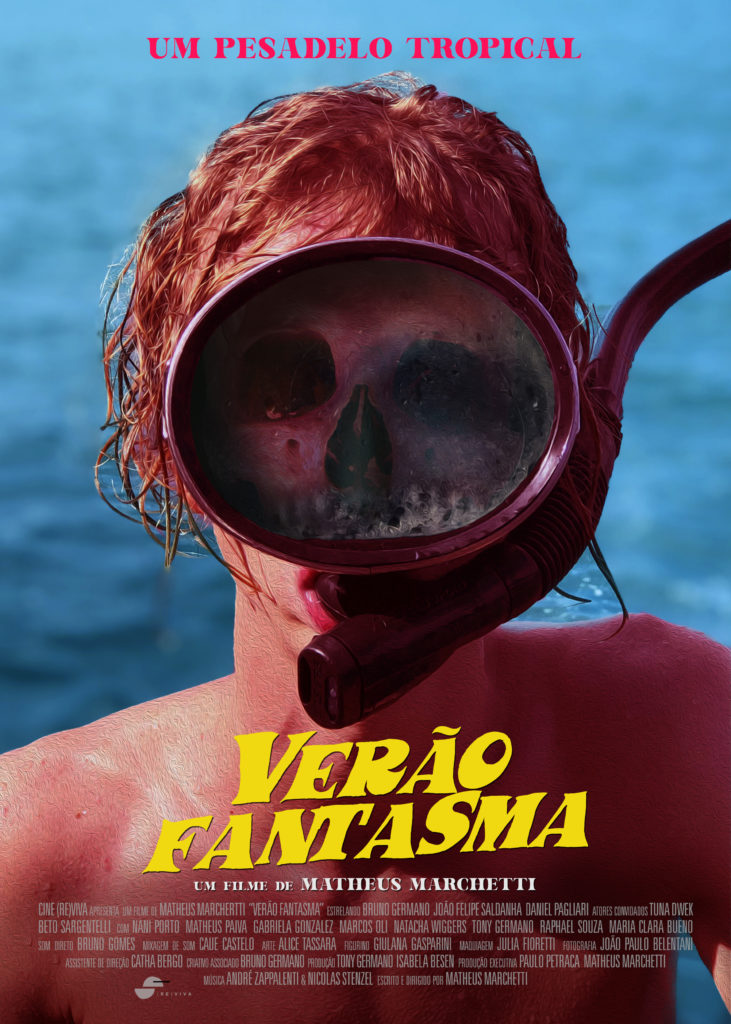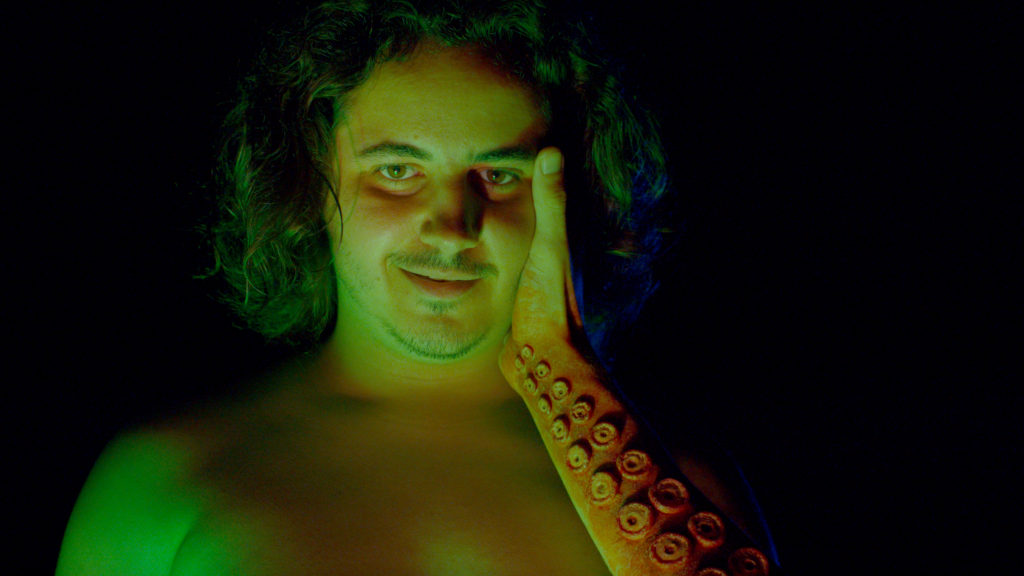
Heading back to the coastal town where he is haunted by the memories of a past friend, Martin ends up meeting Lucas and the two begin to search for clues as to the disappearance of the long-lost friend. However, as they dig deeper love begins to blossom in the face of dark secrets from the past emerging that affect both the couple and Martin’s younger sister Alice. Phantom Summer is a unique title from director Matheus Marchetti that incorporates romance, surreal horror, and opera to tell the story of social persecution and a troubled past.

Matheus Marchetti’s Phantom Summer is one of those productions that throws everything against the wall in hopes that something will stick and resonate with the viewer. In particular, the project attempts to tackle several different genres; romance, comedy, horror, mystery, and musical. The result, as is often the case with films bogged down in excess, is a bit of a muddled mess that is impressive one moment only to transition into aggravating tedium.
Separating the elements of the production, when Marchetti is committed to one genre the experience is mostly positive. This is particularly true in the final act of the film where it transitions into a surreal opera where the lighting, cinematography, and narrative take a sharp turn from the more drama-heavy opening moments. However, this also acts as an example of inconsistency as this shift does not happen until over an hour into the production. It is also a rough transition as there is no previous cue to inform the audience of its musical inspirations and shift.
The other major component that works well in the story is the blossoming relationship between Martin and Lucas. Lucas forcing Martin to come out of his shell acts as a sexual awakening that pushes the macabre elements that dominate the later portion of the film, while blending supernatural elements with the horrors of social stigma around homosexuality. It is the only consistency in the movie that keeps it grounded, though just by a thin thread of narrative familiarity.

One of the most notable faults in this approach comes from the performances of every member of the cast. This is less of a commentary on their skills, since working with an under-experienced cast and asking them to emote through several different genres does a disservice to each. Seemingly all trained in opera, the push to also have the performers take on drama, romance, and fear turned out to be too big of a burden as scenes are often stifled by awkward performances that don’t match the mood.
Phantom Summer is a frustrating watch and one in which it is easy to see how it could have been fixed in a multitude of ways. Integrating aspects of the opera throughout the production to a more traditional musical structure, for example, could have helped quell the awkwardness. Furthermore, the stilted performances will pull the audience out of the scene and make for some unintentionally humorous moments. As a cohesive narrative, nothing really works.
What will keep viewers transfixed by Phantom Summer will be in dissecting the separate components, where the music and operatic pieces are phenomenal, the narrative is intelligent when dealing with themes of prosecution, and surreal imagery is hypnotic despite its obvious budget limitations. Ultimately, Matheus Marchetti has crafted a wholly original film that is worth checking out, even if it can be a frustrating mess at points.
We Watched Phantom Summer as Part of the 2022 Fantaspoa Film Festival


More Film Reviews
The Final Wish (2018) Film Review – When You Wish Upon A Star
Having just landed on Shudder UK, The Final Wish (2018) is director Timothy Woodward Jr’s third film and boasts a story from Jeffery Reddick, writer of the first two Final…
Semi-Document: Occult Sex (1974) Film Review – Exploring the Powers of ESP (Extrasensory Perversion)
Pinku softcore porn films were big business for Japanese studios throughout the 1970s; so lucrative were these films, that when Nikkatsu was on the verge of bankruptcy in 1971, they…
The Guyver (1991) Film Review – Early Western Anime Adaptation
The Guyver is a 1991 American live-action tokusatsu sci-fi horror, written by Jon Purdy, and directed by Screaming Mad George and Steve Wang. The film is an adaptation of the…
Overlooked J-Horror: Director Koji Shiraishi
Konnichiwa! Ni Hao! Hola! Straight Outta Kanto here with a little director spotlight for you this week! Just like you guys I am a die-hard Asian horror fan and have…
Paul Dood’s Deadly Lunchbreak (2021) Film Review – British Dark Comedy… with Glitter
When Paul’s chance of winning a national talent competition are ruined & his dreams of fame slashed, he plans a deathly revenge mission. 1 lunch break, 5 spectacular murders. Will…
Blood in the Snow Film Festival BITS 2021- Short Films Spotlight
Blood in the Snow (BITS) is a Toronto-based horror film festival that is presenting its 9th annual line-up at the Royal Alexander Theatre from November 18-23, 2021. Festival director Kelly…





